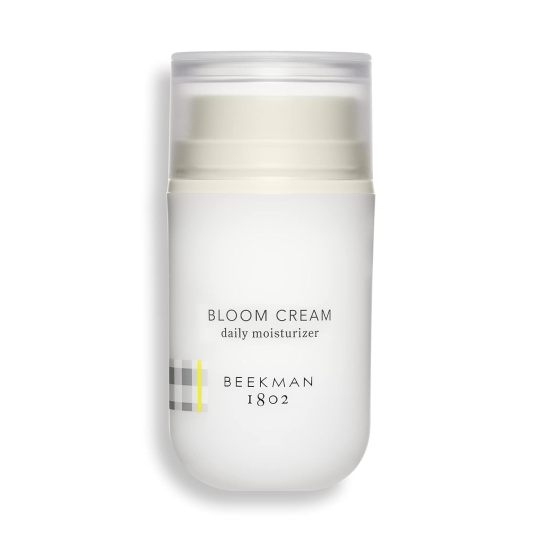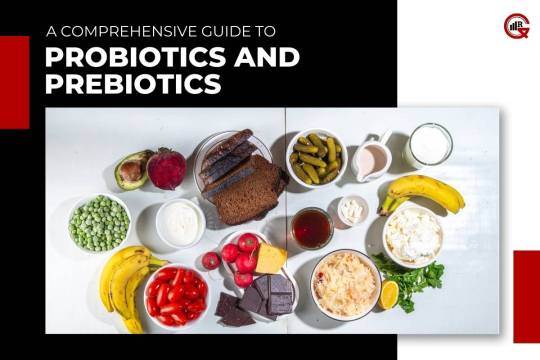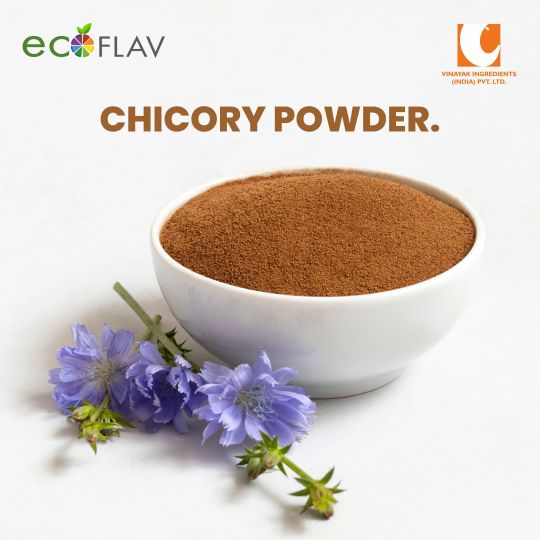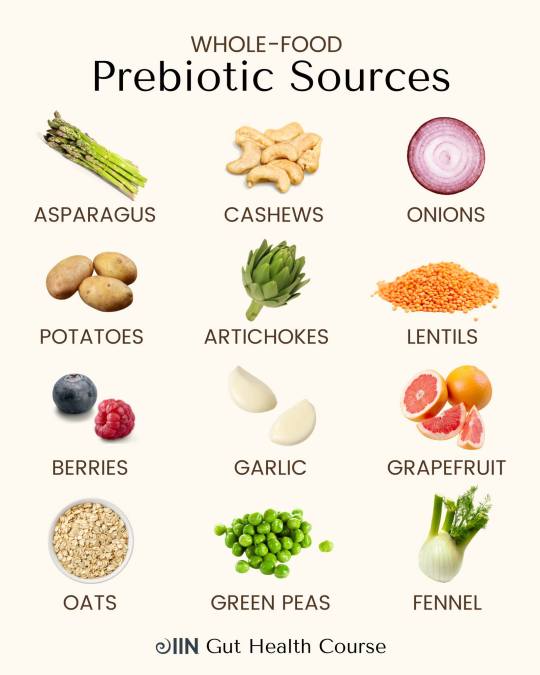#prebiotics
Note
hello :) i’m trying to improve my gut health so i was wondering if you know what i should eat / take to have a healthy gut? thank you ♡
Hi angel <3
Eat foods like whole grains, fruits, vegetables, legumes, and nuts are high in fiber, which can promote the growth of beneficial gut bacteria.
Fermented foods like yogurt, kefir, sauerkraut, olives, pickles, kimchi, and kombucha contain probiotics that can help balance your gut flora.
Prebiotic foods feed the good bacteria in your gut. Examples include garlic, onions, leeks, asparagus, bananas, berries, tomatoes.
Drinking enough water helps keep your digestive system working well. Add some lemon in your water too.
High-sugar and low-fiber processed foods can negatively impact gut health. Limit the amount of processed foods you eat.
Stress can affect your gut health, so try meditation or yoga.
Try to get 7-9 hours of quality sleep per night.
Exercising regularly also helps support a healthy gut.
Eat less sugar and artificial sweeteners.
Drink bone broth daily. It helps with intestinal healing and prevents diseases.
Make sure you are taking enough magnesium.
I will write a gut healthy grocery list on a separate post :)
#gut health#healthy living#healthyhabits#healthy lifestyle#health and wellness#health is wealth#nutrition#probiotics#prebiotics#healthy diet#wellness#health
209 notes
·
View notes
Text
Gut health 101
#tiktok#simple cooking#cooking#probiotics#prebiotics#self help#self healing#herbal remedies#herbal medicine#heal your gut#healthy lifestyle#food pairing
53 notes
·
View notes
Text

prebiotics and probiotics in healthy foods ♥
#prebiotics#probiotics#food#healthy food#plant based#plantbased#vegan#vegetarian#natural#milenial#love#health#wellness#health and wellness#healthy
2 notes
·
View notes
Text
This post is because I care about your gut health. My friends, it truly starts with your gut. The state of our gut's microbiome influences everything from nutrients we do/don't absorb, blood sugar, mood, cravings, mental health, sensitivities, inflammation.... When it comes to your health, prioritizing your gut is non-negotiable.
#guthealth #gut #leakygut #candida #microbiome #probiotics #prebiotics #food #foodismedicine #diet #lifestyle #health #healthy #healthyliving #healthylife #nutrition #foodsensitivities #IBS #heartburn #crohns #diverticulitis #ulcers #foodfacts #didyouknow #rootofhealth #antiinflammatory #moodboosters #mentalhealth #cravings #weightloss
#gut#guthealth#gut health#mental health#Microbiome#blood sugar#mood#mood booster#leaky gut#Candida#H pylori#prebiotics#probiotics#food#food is medicine#diet#healthy lifestyle#healthy#Health#Health tips#antiinflammatory#IBS#crohns#weight loss#weight management
5 notes
·
View notes
Text
This Prebiotic-Rich Moisturizer Has Given Me the Healthiest Skin of My Life
It's formulated with goat milk.
By Marcio "MZA"

"Probiotics" and "prebiotics" are buzzwords often thrown around in the skincare and wellness industries. Still, many people don't even understand how they work, why they're good for us, and how we should use them. After all, who wants to put bacteria on their skin? Especially if you already deal with acne.
It's me. I'm people. So just hear me out on this one.
I’ve dealt with acne since my teenage years, and despite having access to the best products and in-office treatments on the market, it never seems to go away. This rings especially true in the winter months when my skin becomes parched from the dry air and harsh winds, and since I've struggled to find a thick moisturizer that doesn't break me out (until now), my skin reacts to the weather and I suffer the consequences. So, when I learned about pre- and probiotics my initial reaction was to say "no, thank you." However, after using Beekman 1802's Bloom Cream moisturizer for a few weeks my skin completely transformed — and now I wax poetic about it every chance I get.
The reason most heavy moisturizers make me break out is because they use comedogenic ingredients that do a great job at sealing in moisture but clog my pores. This one, however, does not.
Its postbiotic-rich formula is filled with an elegant cocktail of moisturizing sunflower seed oil, calming aloe extract, nourishing honey, collagen-boosting whey protein, and a plethora of other common skin-friendly ingredients. What makes this moisturizer so unique is that it adds goat milk prebiotic, milk postbiotic, and healing Epsom salts.

Buy on AMAZON 54U$
What's more, despite feeling rich and thick, it absorbs quickly into the skin and feels lightweight and pillow-y. The formula is delectable, and I love that now I don't have to sacrifice a clear complexion for a moisturized one. I can have my cake and eat it too.
From non-toxic makeup and skincare to sustainability practices, Clean Slate is an exploration of all things in the green beauty space. Find out what's really in your products — and what's being left out.
1 note
·
View note
Text

"Ignite Your Creativity: Register Now for Our Workshop!" Join us to the Workshop with Dr. Jason Mitchell from Probulin Probiotics. We are pleased to invite you to the free workshop on May 21, 2024, at Grand Hyatt Dubai Riyadh Street, United Arab Emirates.
Workshop Title: The Evolution in Probiotic Therapy
For workshop details, visit here: https://gastroenterology.universeconferences.com/the-evolution-in-probiotic-therapy/
#GutHealth#DigestiveHealth#GutMicrobiome#GutHealthSpecialist#FunctionalMedicine#DigestiveDisorders#GutHealing#Probiotics#Prebiotics#HolisticHealth#NutritionTherapy
0 notes
Text
Digestive Health Supplements Market - Global Opportunity Analysis and Industry Forecast (2024-2031)
Meticulous Research®—a leading global market research company, published a research report titled, ‘Digestive Health Supplements Market by Type (Probiotics, Prebiotics, Enzymes), Form (Tablets, Capsules, Powder, Liquid), Distribution Channel (Convenience Store, Supermarkets, Pharmacies, E-commerce), and Geography - Global Forecast to 2031.’
According to this latest publication from Meticulous Research®, the digestive health supplements market is projected to reach $108.5 billion by 2031, at a CAGR of 6.7% from 2024 to 2031. The growth of the digestive health supplements market is mainly driven by the growing demand for nutrition-enriched products, increasing awareness about gut health, increasing geriatric population and prevalence of digestive disorders, and growing innovations and new product developments. However, strict regulations and the high cost of products are expected to restrain the growth of this market.
The digestive health supplements market is segmented by type (probiotics, prebiotics, enzymes, and other products), form (tablets, capsules, powder form, liquid form, and other forms), distribution channel (supermarkets & hypermarkets, convenience stores, specialty stores, pharmacies & drug stores, e-commerce, and other distribution channels), and geography (North America, Europe, Asia-Pacific, Latin America, and the Middle East & Africa). The study also evaluates industry competitors and analyzes the market at the regional and country levels.
Based on type, the probiotics segment is expected to account for the largest share of the digestive health supplements market, mainly due to the increasing use of probiotics as an alternative to antibiotics, growing use of probiotics for children, increasing research and development activities on probiotics, and the prevalence of digestive disorders.
Based on form, the tablets segment is expected to account for the largest share of the digestive health supplements market, mainly due to its ease of consumption, preserving the nutritional value with no bad taste, low cost, and higher shelf life.
Based on distribution channel, in 2024, the supermarkets & hypermarkets segment is expected to account for the largest share of the digestive health supplements market. The large market share of this segment is attributed to rapid urbanization, rising per capita disposable incomes, growing number of supermarkets and hypermarkets, and increased sales of health supplements in well-established supermarkets and hypermarkets.
Based on geography, in 2024, North America is expected to account for the largest share of the digestive health supplements market. North America’s large share is attributed to the increasing aging population, growing lifestyle-related diseases, increasing digestive-related disorders, and the presence of the leading key players in the region.
Key Players
The digestive health supplements market is characterized by moderate competition due to the presence of many large and small-sized global, regional, and local players. The key players operating in the digestive health supplements market are Nestlé S.A. (Switzerland), Bayer AG (Germany), Herbalife Nutrition Ltd. (U.S.), Pfizer Inc. (U.S.), Abbott Laboratories (U.S.), Amway Corporation (U.S.), Danone S.A. (France), NOW Foods (U.S.), PrecisionBiotics (Ireland), and BioGaia (Sweden).
Download Sample Report Here @ https://www.meticulousresearch.com/download-sample-report/cp_id=5779
Key Questions Answered in the Report-
What is the current value of revenue generated by the global digestive health supplements market?
At what rate is the global demand for digestive health supplements projected to grow for the next 5–7 years?
What are the historical market sizes and growth rates of the global digestive health supplements market?
What are the major factors impacting the growth of this market at the global and regional levels? What are the major opportunities for existing players and new entrants in the market?
Which segments in terms of type, form, and distribution channel are expected to provide major traction for the manufacturers in this market?
What are the key geographical trends in this market? Which regions/countries are expected to offer significant growth opportunities for the manufacturers operating in the digestive health supplements market?
Who are the major players in the global digestive health supplements market? What are their specific product offerings in this market?
What are the recent strategic developments in the global digestive health supplements market? What are the impacts of these strategic developments on the market?
Contact Us:
Meticulous Research®
Email- [email protected]
Contact Sales- +1-646-781-8004
Connect with us on LinkedIn- https://www.linkedin.com/company/meticulous-research
#DigestiveHealth#SupplementsMarket#DigestiveHealthSupplements#GutHealthSupplements#Prebiotics#Probiotics#Enzymes#DigestiveSupplements#FoodandBeverages
0 notes
Text
Microbiome: Understanding Our Inner Ecosystem
In the vast universe of our body, a complex and bustling community thrives quietly but critically. This community is not human cells, but trillions of microorganisms, including a staggering 38 trillion bacteria, which intriguingly make up 50% of our body.
In the vast universe of our body, a complex and bustling community thrives quietly but critically. This community is not human cells, but trillions of microorganisms, including a staggering 38 trillion bacteria, which intriguingly make up 50% of our body by cell count. 1,2 Understanding this community, known as our microbiome, is not just fascinating—it’s essential to grasping how we function,…

View On WordPress
#benefits of probiotics#gut microbiome#gut microbiome and immune system#gut microbiome and mental health#gut microbiome and weight loss#gut microbiome testing#healthy microbiome#human microbiome#microbiome#microbiome diet#microbiome gut health#microbiome testing#microbiome vs microbiota#prebiotics#prebiotics vs probiotics#prebiotics: tending our inner garden#probiotics#the microbiome#what are probiotcs#what is the microbiome
0 notes
Text
A Comprehensive Guide To Probiotics And Prebiotics

In recent years, there has been a growing interest in the role of gut health in overall well-being, leading to increased attention to probiotics and prebiotics. These two components play crucial roles in maintaining a healthy balance of microorganisms in the gut, known as the gut microbiota. In this comprehensive guide, we delve into the world of probiotics and prebiotics, exploring their definitions, functions, sources, benefits, and the latest research in the field.
Understanding Probiotics and Prebiotics
Probiotics: Probiotics are live microorganisms, mainly bacteria and some yeast strains, that confer health benefits when consumed in adequate amounts. These beneficial bacteria colonize the gut and contribute to the balance of the gut microbiota, promoting digestion, nutrient absorption, and immune function. Probiotics are naturally found in fermented foods such as yogurt, kefir, sauerkraut, kimchi, and kombucha, as well as in dietary supplements.
Prebiotics: Prebiotics are nondigestible fibers or compounds that serve as fuel for beneficial bacteria in the gut, promoting their growth and activity. Unlike probiotics, prebiotics are not living organisms but rather substances that nourish the existing gut microbiota. Common prebiotic sources include fruits, vegetables, whole grains, legumes, and certain types of fiber such as inulin, oligofructose, and resistant starch.
The Gut Microbiota: A Key Player in Health

The gut microbiota, composed of trillions of microorganisms, including bacteria, viruses, fungi, and archaea, plays a critical role in maintaining gut health and overall well-being. These microorganisms interact with the host immune system, influence metabolism, produce essential nutrients, and help protect against pathogens. An imbalance in the gut microbiota, known as dysbiosis, has been linked to various health conditions, including gastrointestinal disorders, metabolic diseases, immune disorders, and mental health disorders.
Benefits of Probiotics
Digestive Health: Probiotics help maintain a healthy balance of gut bacteria, which is essential for proper digestion and nutrient absorption. They can alleviate symptoms of digestive disorders such as irritable bowel syndrome (IBS), diarrhea, constipation, and inflammatory bowel diseases (IBD) by restoring microbial balance and promoting gut motility.
Immune Support: Probiotics play a crucial role in supporting immune function by enhancing the production of antimicrobial peptides, stimulating the production of immunoglobulins, and modulating immune cell activity. Regular consumption of probiotics has been associated with reduced risk of respiratory infections, allergies, and autoimmune diseases.

Weight Management: Some studies suggest that certain probiotic strains may aid in weight management by promoting the production of short-chain fatty acids (SCFAs), which regulate appetite, fat metabolism, and energy balance. Probiotics may also influence gut hormones involved in satiety and hunger regulation.
Benefits of Prebiotics
Gut Health: Prebiotics promote the growth of beneficial bacteria in the gut, leading to a diverse and resilient gut microbiota. By providing substrates for fermentation, prebiotics contributes to the production of SCFAs, which nourish colonocytes, maintain gut barrier integrity, and modulate immune function.
Blood Sugar Control: Certain types of prebiotic fibers, such as resistant starch and soluble fibers, have been shown to improve blood sugar control by slowing down the absorption of glucose and promoting the growth of beneficial bacteria that produce short-chain fatty acids.
Heart Health: Prebiotics may have beneficial effects on heart health by lowering cholesterol levels, reducing blood pressure, and improving lipid metabolism. The fermentation of prebiotic fibers in the colon produces SCFAs, which have anti-inflammatory and anti-atherogenic properties.
Bone Health: Prebiotics may support bone health by enhancing calcium absorption in the gut and modulating the gut microbiota composition. Some studies suggest that prebiotic supplementation may improve bone mineral density and reduce the risk of osteoporosis.
Synergy between Probiotics and Prebiotics
https://gqresearch.com/wp-content/uploads/2024/04/1.4.-Synergy-between-Probiotics-and-Prebiotics.jpg
Probiotics and prebiotics work synergistically to promote gut health and overall well-being. This synergistic effect, known as synbiotics, involves consuming a combination of probiotics and prebiotics to enhance the survival and activity of beneficial bacteria in the gut. By providing a source of nutrients for probiotic bacteria, prebiotics help improve their viability and colonization in the gut, leading to greater health benefits.
Challenges and Considerations
Strain Specificity: Different probiotic strains have distinct effects on gut health and may vary in their efficacy for specific health conditions. Choosing the right probiotic strain or combination of strains is essential for achieving desired health outcomes.
Survival and Viability: Probiotic bacteria are sensitive to environmental factors such as temperature, pH, and oxygen exposure, which can affect their survival and viability during storage and digestion. Encapsulation techniques and protective coatings are used to enhance the survival of probiotic bacteria in dietary supplements.
Individual Variability: The response to probiotics and prebiotics may vary among individuals due to factors such as genetics, diet, lifestyle, and gut microbiota composition. Personalized approaches to probiotic and prebiotic supplementation may be needed to optimize health benefits for each individual.
Dosage and Duration: Optimal dosage and duration of probiotic and prebiotic supplementation depend on the specific health condition being targeted and individual factors. Clinical studies are needed to determine the most effective doses and treatment regimens for different populations.
Conclusion: Nurturing Gut Health with Probiotics and Prebiotics
In conclusion, probiotics and prebiotics play integral roles in maintaining gut health, supporting immune function, and promoting overall well-being. Incorporating probiotic-rich foods such as yogurt, kefir, and fermented vegetables, as well as prebiotic-rich foods such as fruits, vegetables, and whole grains, into the diet can help optimize gut microbiota composition and function. Additionally, dietary supplements containing probiotics and prebiotics offer convenient ways to augment gut health and address specific health concerns. By understanding the synergistic relationship between probiotics and prebiotics and harnessing their combined benefits, we can nurture our gut microbiota and pave the way for a healthier future.
0 notes
Text
Prebiotics Market by Ingredient (Inulin, Fructo Oligosaccharides, Galacto Oligosaccharides, Mannan Oligosaccharides), Application (Food & Beverages {Dairy Products, Beverages, Infant Food Products}, Dietary Supplements), and Geography - Global Forecast to 2029
#Prebiotics Market#prebiotics#food#food industry#food and nutrition#food and beverages#nutrition#nutraceuticals
0 notes
Text
#probiotics#prebiotics#gut health#ibs#ibs awareness month#irritable bowel syndrome#ibs diet#low fodmap
1 note
·
View note
Text

Within the unassuming roots of the chicory plant lies a treasure trove of phytochemicals, offering a myriad of health benefits and culinary possibilities. Among these compounds, inulin shines as a prominent player, constituting a significant portion of chicory's nutritional profile. However, the richness of chicory roots extends far beyond inulin, encompassing a diverse array of phytochemicals that contribute to its unique flavor profile and therapeutic properties.
0 notes
Text

prebiotic foods ♥ garlic, cashews, lentils, green peas
#prebiotic food#prebiotics#health#wellness#health and wellness#healthy food#food#natural#vegan#vegetarian#plantbased#plant based#millennials
2 notes
·
View notes
Text
What Food Contains Lactobacillus Reuteri?
Have you ever thought about how much the food we eat can affect our bodies, especially our gut health? The age-old saying "You are what you eat" rings true, and one microorganism that's sparking interest in this field is Lactobacillus reuteri.
This beneficial bacterium has been found to bolster the population of good bacteria in our intestines, thus promoting better digestion and overall gut health.
In this blog post, we'll delve into the potential of Lactobacillus reuteri as a probiotic, its positive effects on digestion, and some tasty ways to include it in your daily diet.
#LactobacillusReuteri#Probiotics#GutHealth#DigestiveHealth#Microbiome#HealthyBacteria#VinaturaSupplements#HealthAndWellness#NaturalHealth#ImmuneSystem#HealthyLiving#Supplements#Nutrition#WellnessTips#HealthyLifestyle#BacterialBalance#HolisticHealth#Prebiotics#HealthyGut#DigestiveBalance#HealthyEating#NaturalSupplements#Microbiota#HealthTips#DigestiveSystem#GutFlora#WellnessWednesday#HolisticWellness#FunctionalFood#HealthyMicrobes
0 notes
Text

🌟 Boost your immune system and gut health with Zinc Gluconate with prebiotic probiotic Oral Suspension from Plenum Biotech!💊✨ For strong immune system, improved digestion and gut health, promote a healthy balance of good bacteria! 💪🌿 Available in Pediatric Products franchise & Third Party Manufacturing.🙂💚
Try them now!
Email at: [email protected]
Website: https://www.plenumbiotech.com/product/zinc-gluconate-with-prebiotic-probiotic-oral-suspension-robio-dry-syrup/
#pcdpharmafranchise#pcd pharma franchise#thirdpartymanufacturing#pcdfranchise#third party pharma manufacturing#third party manufacturing#plenumbiotech#plenumbio#digestivehealth#pediatricpcdfranchise#pediatricpharmafranchise#pediatricproductfranchise#zincgluconateoralsuspension#prebiotics#probiotics#oralsuspension#suspensionforkids
0 notes
Text
Level Up Your Gut Game: Power Up with Prebiotics! #GutHealth #PrebioticPower
Feeling sluggish? Your gut might be craving some TLC! Prebiotics are like fertilizer for your good gut bacteria, promoting a happy and healthy digestive system. Here's the scoop:
Prebiotics feed your good gut bacteria, keeping your digestion smooth.
They can boost your immune system and overall well-being. ✨
They're delicious! (Think bananas, onions, garlic, and more!)
Fuel your gut with prebiotics and experience the difference! #EatWellFeelGreat #NourishYourBody
#gut health#prebiotics#prebiotic food#healthy weight loss#fitness#weight loss tips#weight loss#summer weight loss#weight loss diet#weight loss motivation#health and wellness#healthy eating#health and fitness#healthy lifestyle
1 note
·
View note